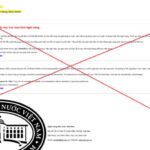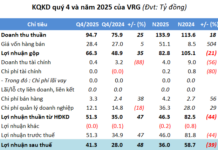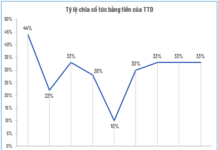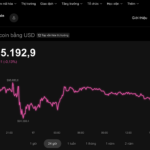Accounts and personal data remain prime targets
In the first half of 2025, Viettel Threat Intelligence of VCS recorded nearly 8.5 million user accounts in Vietnam being stolen, accounting for 1.7% of the total number of leaked accounts globally. Notably, many accounts were related to sensitive systems such as corporate emails, VPNs, SSOs, and administrative accounts. The consequences are not just limited to stolen login information but also include the risks of unauthorized access, internal asset theft, and operational system disruption.
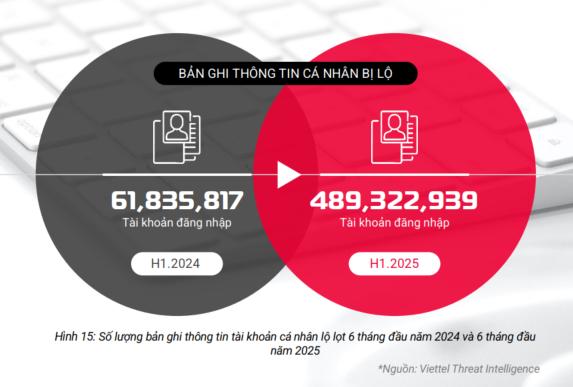
Vietnam accounted for 1.7% of the global total of over 489 million compromised accounts.
Along with this, Viettel Threat Intelligence detected 191 cases of data being sold in Vietnam, triple the number from the same period last year. The volume of data sold reached nearly 3 billion records and 482 GB of data, including many identifying information, customer profiles, and internal systems of enterprises, mostly from reputable businesses and organizations in various fields. In some cases, the leaks were due to unpatched system vulnerabilities or previously compromised accounts that went undetected.

The number of data selling and sharing incidents in the first six months increased significantly compared to 2024.
During this period, 67 new security vulnerabilities were identified as potentially impacting Vietnamese businesses. Notably, attack groups are not only focusing on new vulnerabilities but also exploiting old ones for which public exploit codes are available. Many of these vulnerabilities allow intruders to gain unauthorized access to systems (remote code execution, authentication bypass, or privilege escalation) with a simple click.
Brand impersonation and targeted scams: No longer a mass attack
The report also pointed out more than 4,500 scam domains and 1,067 fake websites. Scam scenarios are becoming increasingly realistic: impersonating banks, tax authorities, power companies, delivery companies, recruiters, and even summer charity programs.

Finance and Banking remain the top sectors for scam and impersonation attacks.
“Notably, the victims are not just individuals but also business owners or internal staff with access to systems, finances, or customer data. Once the scam is successful, hackers can infiltrate the organization’s operational chain,” said Mr. Tran Minh Quang, Director of the Center for Analysis and Sharing of Cyber Security Risks, VCS.
These attacks are becoming more dangerous as they are personalized using AI and data collected from social media, making it easier to trap users, while traditional security systems struggle to detect them due to their increasingly realistic nature.
Emerging trends in attacks for the next six months
VCS experts predict that, from now until the end of the year, AI and deepfake will become central elements of a new wave of attacks. Automated phishing, deepfake voice/video, and voice impersonation will make it challenging for users and enterprise employees to distinguish between real and fake.
At the same time, fileless malware and ransomware-as-a-service (RaaS) are booming. Even inexperienced hackers can purchase ready-to-use attack packages on the dark web and deploy them into target enterprises with just a few mouse clicks.
Additionally, IoT platforms and blockchain ecosystems are emerging as new targets. Poorly secured devices or unattended distributed systems are weak points exploited by attack groups.
Cyber attacks are no longer a matter of “if” but “when,” happening every hour and every day. Businesses that take proactive measures will have a better chance of surviving and thriving safely in the digital era.
What should enterprises do to prevent these attacks?
According to VCS experts, enterprises need to shift from a “reactive after-incident” mindset to “proactive monitoring and early prevention.” Firstly, it is crucial to implement a 24/7 information security monitoring system integrated with a domestic Threat Intelligence platform to timely identify ongoing targeted attack campaigns. Simultaneously, conducting regular vulnerability scanning and patching on critical systems, especially software and devices commonly exploited by hackers, should become a routine practice rather than a reactive measure.
Enterprises also need to comprehensively assess the risks associated with third-party vendors and partners and establish security requirements in the contracting phase to mitigate data leaks through the supply chain.
Regarding human factors, fostering a culture of information security is essential. Each employee should be trained to recognize signs of scams and impersonation attempts and adhere to minimal access rules.
Finally, enterprises should consider investing in next-generation security solutions such as Zero Trust, External Attack Surface Management (EASM), and Privileged Access Management (PAM/PIM). They should also proactively reassess their systems’ current risk levels to identify and prioritize immediate protection needs.
“Only by taking proactive action – instead of waiting to react to attacks – can businesses stand firm in the increasingly fierce cyber landscape,” emphasized Mr. Quang.
Download the full report here: https://viettelsecurity.com/vi/resource-report/bao-cao-tinh-hinh-nguy-co-attt-tai-viet-nam-6-thang-dau-nam-2025/
“The Case for Curbing Excessive Discounts: A Proposal to Regulate Promotional Ads on E-commerce Platforms”
The rise of e-commerce platforms on social media has brought to light a concerning issue: the disregard for fair competition. It has come to our attention that certain platforms are engaging in unethical practices, with advertisements and promotions offering discounts of over 50% on goods and services. This is a blatant violation of competitive norms and has the potential to create an unfair marketplace. It is imperative that we, as responsible digital citizens, address this issue and hold these platforms accountable for their actions.
The Ultimate Guide to Securing Your Microsoft Products: Patching Critical Vulnerabilities and Staying Ahead of Hackers
The National Cyber Security Monitoring Center has issued a warning regarding 13 high-impact and critical vulnerabilities in Microsoft products. These vulnerabilities could potentially allow attackers to execute remote codes, perform spoofing attacks, gain privilege escalation, and bypass protection mechanisms.
“Beware of Phishing Scams: Fake Messages Claiming to be from the State Bank of Vietnam”
The State Bank of Vietnam (SBV) has issued a warning about a recent spate of phishing attacks. Fraudsters are impersonating the SBV by creating fake email interfaces that dupe unsuspecting individuals into providing their biometric data for alleged bank transactions. The SBV urges citizens to be vigilant and not fall prey to such deceitful tactics.
Woman’s bank account hacked, police contacted immediately, suspicious details emerge
“Access a mysterious link to synchronize personal data, a woman from Hanoi receives a message from the police with a commitment to reimburse the entire amount that was stolen.”



